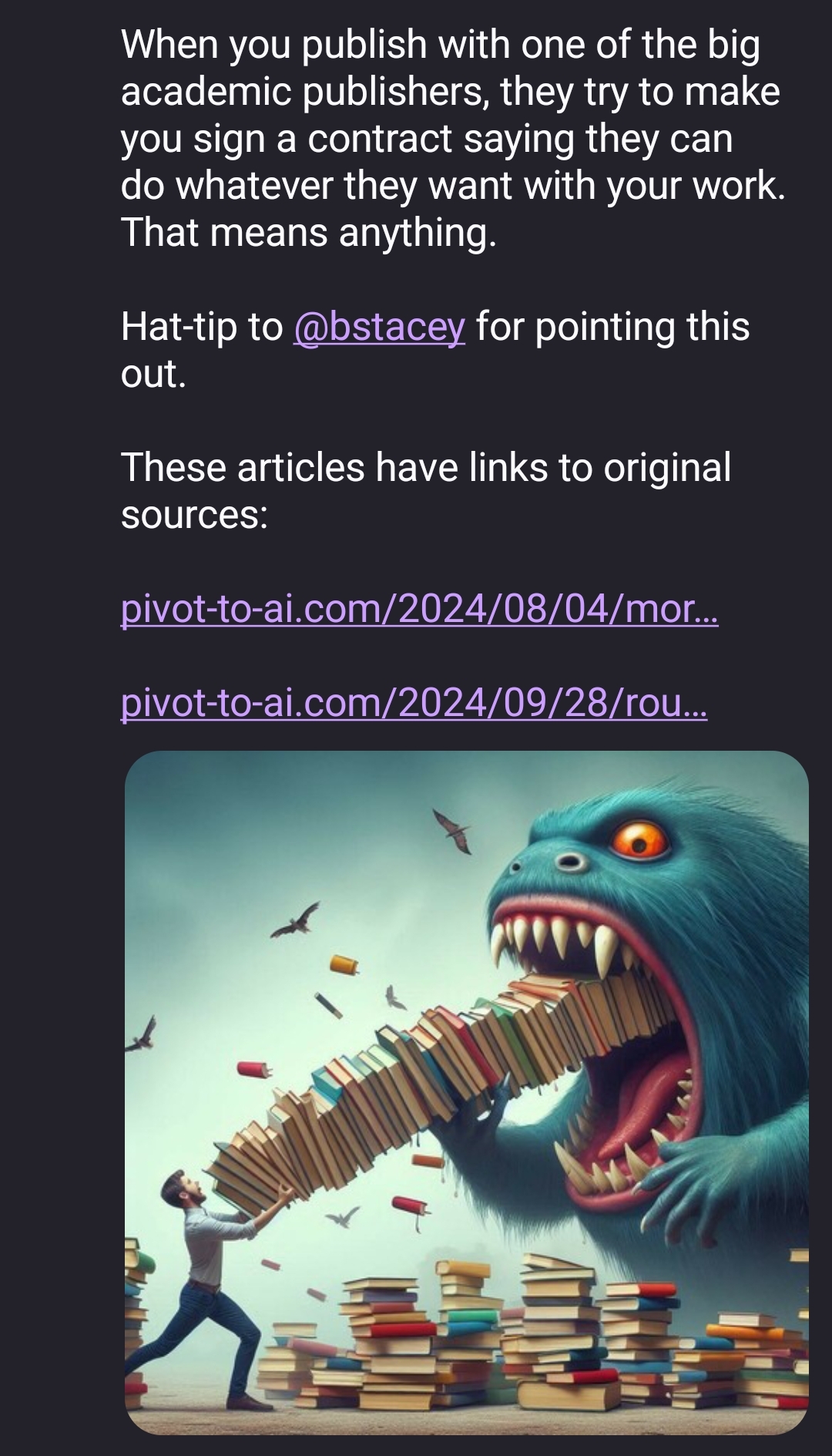
Taylor & Francis and Wiley sold out their researchers in bulk, this should be a crime.
Researchers need to be able to consent or refuse to consent and science need to be respected more than that.

Taylor & Francis and Wiley sold out their researchers in bulk, this should be a crime.
Researchers need to be able to consent or refuse to consent and science need to be respected more than that.
Speaking of fearmongering, you note that:
Ignoring the false equivalency between getting inspiration at an art gallery and feeding millions of artworks into a non-human AI for automated, high-speed, dubious-legality replication and derivation, copyright is how creative workers retain their careers and find incentivization. Your Twitter experiences are anecdotal; in more generalized reality:
The above four points were taken from the Proceedings of the 2023 AIII/ACM Conference on AI, Ethics, and Society (Jiang et al., 2023, section 4.1 and 4.2).
Help me understand your viewpoint. Is copyright nonsensical? Are we hypocrites for worrying about the ways our hosts are using our produced goods? There is a lot of liability and a lot of worry here, but I’m having trouble reconciling: you seem to be implying that this liability and worry are unfounded, but evidence seems to point elsewhere.
Thanks for talking with me! ^ᴗ^
(Comment 2/2)